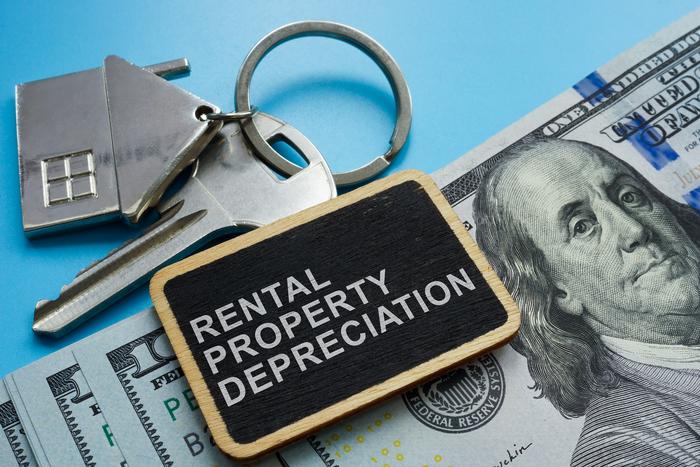
Unlocking Success in Rental Property Investments: A Comprehensive Guide to Evaluating Potential Properties
Investing in rental properties can be a lucrative venture, providing a stable income stream and long-term wealth accumulation. However, to maximize your potential returns and make informed investment decisions, it is crucial to carefully evaluate potential rental properties.
Introduction
Investing in rental properties can be a lucrative venture, providing a stable income stream and long-term wealth accumulation. However, to maximize your potential returns and make informed investment decisions, it is crucial to carefully evaluate potential rental properties. This process involves assessing various factors that can impact the property's profitability, such as location, rental demand, property condition, and financial considerations. In this comprehensive guide, we will delve into the essential aspects to consider when evaluating potential rental properties, empowering you to make sound investment choices.
I. Defining Your Investment Objectives
Before diving into the evaluation process, it is important to establish your investment objectives. Clarifying your goals, risk tolerance, and preferred investment strategy will help guide your property search and evaluation criteria. Consider factors such as your desired cash flow, property appreciation potential, time horizon, and personal preferences. By defining these objectives, you can focus your efforts on properties that align with your investment goals.
II. Location and Neighborhood Analysis
The location of a rental property plays a pivotal role in its long-term success. Evaluate the neighborhood by considering proximity to amenities (schools, parks, shopping centers), transportation options, employment opportunities, and safety. A desirable location with strong economic growth and low crime rates will attract quality tenants and help maintain property value over time.
III. Rental Demand and Market Trends
Assessing the rental demand in the area is crucial for ensuring consistent occupancy and rental income. Analyze market trends, vacancy rates, and rental rates for similar properties in the vicinity. Factors such as population growth, job market stability, and the presence of educational institutions or corporate centers can influence rental demand. Online platforms and local real estate agents can provide valuable data and insights into the rental market.
IV. Property Condition and Potential Repairs
Thoroughly inspecting the property is essential to understand its condition and identify any potential repairs or maintenance requirements. Consider the age of the property, the condition of the roof, plumbing, electrical systems, and the overall structural integrity. Evaluate the property's curb appeal, as well as the functionality and aesthetics of the interior spaces. Be sure to factor in the cost and time required to address any necessary repairs or renovations when calculating your investment costs.
V. Cash Flow Analysis
Analyzing the potential cash flow of a rental property is a vital step in evaluating its investment viability. Calculate the property's gross rental income by estimating the monthly rent based on market rates. Deduct the expenses associated with the property, such as property taxes, insurance, maintenance costs, property management fees, and mortgage payments. A positive cash flow, where the rental income exceeds expenses, indicates a potentially profitable investment.
VI. Financing Considerations
Evaluate the financing options available for the investment property, including mortgage rates, down payment requirements, and loan terms. Calculate the mortgage payments and consider the impact on your cash flow analysis. Additionally, assess the potential for future appreciation by researching historical property value trends in the area. Understanding the financial aspects of your investment will help you make an informed decision and ensure its long-term sustainability.
VII. Legal and Regulatory Factors
Familiarize yourself with local rental laws, zoning regulations, and landlord-tenant ordinances. Compliance with these regulations is essential for a successful and legally sound rental business. Consider any licensing requirements, restrictions on rental increases, eviction processes, and the overall landlord-tenant relationship framework. Engaging legal counsel or consulting with local real estate professionals can provide valuable guidance in navigating these legal considerations.
VIII. Risk Assessment and Contingency Planning
No investment is without risks, and evaluating potential rental properties involves assessing and mitigating these risks. Consider factors such as economic downturns, market fluctuations, and potential vacancy periods. Calculate the property's break-even occupancy rate—the minimum occupancy required to cover expenses— to understand the risk associated with fluctuations in rental demand. Develop contingency plans to handle unexpected expenses, such as a buffer fund for repairs or a vacancy reserve to cover periods of no rental income.
IX. Return on Investment (ROI) Analysis
Determining the potential return on investment is crucial for evaluating the profitability of a rental property. Calculate the property's ROI by considering the initial investment, including the down payment, closing costs, and any renovation expenses. Compare the projected annual cash flow to the total investment to determine the property's ROI percentage. Additionally, assess the property's potential for appreciation over time, as this can significantly impact long-term returns.
X. Professional Guidance and Due Diligence
Engaging professionals during the evaluation process can provide valuable insights and expertise. Consider working with a reputable real estate agent or property manager who is knowledgeable about the local market. They can help you identify potential properties, provide comparative market analysis, and offer guidance throughout the evaluation process. Additionally, consult with professionals such as home inspectors, contractors, or real estate attorneys to conduct thorough due diligence and ensure a comprehensive assessment of the property.
Conclusion
Evaluating potential rental properties is a critical step towards making informed investment decisions and maximizing returns. By carefully considering factors such as location, rental demand, property condition, financial aspects, and legal considerations, you can assess the viability and profitability of a rental property. Conducting thorough due diligence, analyzing cash flow and ROI, and engaging professionals for guidance will help you navigate the evaluation process with confidence. Remember, investing in rental properties is a long-term commitment, and by taking a comprehensive approach to evaluation, you can set yourself up for success in the dynamic world of real estate investment.



